Advance Praise for Unfriendly Fire
Frank has written a fascinating account of the men and women, the motivations and the passions, surrounding the dont ask, dont tell policy. Others have chronicled the efforts of advocates of gay service, but Frank delves into the minds, motivations, and strategies of those who sought to maintain the ban, providing a compelling indictment of the merits of their position. The heart-wrenching stories of those who failed to survive under the ban, which Frank captures with both art and integrity, provide the ultimate indictment of a flawed policy and practice.
Chai Feldblum,
professor of law at Georgetown University
Nathaniel Frank has written the definitive text on the dont ask, dont tell policy. His treatise is elegant not only in its detailed historical accuracy, but in its poignant description of the impact of the current law on individual gay and lesbian service members.
Rear Admiral Alan M. Steinman, USPHS/USCG (Ret.)
Thanks to Nathaniel Franks rigorous, precise, and insightful research, we now understand the true costs of dont ask, dont tell.
Johnny Symons,
Emmy-nominated filmmaker,
Ask Not and Daddy & Papa
Nathaniel Frank has written an astonishing tale of dont ask, dont tell. No other book reaches as far, or as deep, to explain the origins and consequences of this misguided policy.
Elizabeth L. Hillman,
professor of law at University of California Hastings College
of the Law and former U.S. Air Force Captain
No intellectually honest American general or flag officer can read Unfriendly Fire and continue to support the failed dont ask, dont tell policy.
Major General Dennis Laich,
U.S. Army (Ret.)
Nathaniel Franks indictment of the U.S. militarys efforts to bar gays and lesbians from serving in the countrys armed forcesbetter known as dont ask, dont tellis searing and persuasive. Unfriendly Fire peels away the falsehoods to reveal that at its core the policy has nothing to do with safeguarding military effectiveness and preserving unit cohesion, as its proponents insist.
Professor Coit D. Blacker,
director of the Freeman Spogli Institute for International Studies,
Stanford University
UNFRIENDLY
FIRE

UNFRIENDLY
FIRE

HOW THE GAY BAN
UNDERMINES THE MILITARY
AND WEAKENS AMERICA

NATHANIEL FRANK
THOMAS DUNNE BOOKS  NEW YORK
NEW YORK
ST. MARTIN S PRESS
THOMAS DUNNE BOOKS .
An imprint of St. Martins Press.
UNFRIENDLY FIRE . Copyright 2009 by Nathaniel Frank.
All rights reserved. Printed in the United States of America.
For information, address St. Martins Press, 175 Fifth Avenue, New York,
N.Y. 10010.
www.thomasdunnebooks.com
www.stmartins.com
Library of Congress Cataloging-in-Publication Data
Frank, Nathaniel.
Unfriendly fire: how the gay ban undermines the military and weakens America / Nathaniel Frank.1st ed.
p. cm.
ISBN-13: 978-0-312-37348-1
ISBN-10: 0-312-37348-1
1. Gays in the militaryGovernment policyUnited States. 2. Gays in the militaryUnited States. I. Title.
UB418.G38 F73 2009
355.0086'640973dc22
2008035886
First Edition: March 2009
10 9 8 7 6 5 4 3 2 1
Make us to choose the harder right instead of the easier wrong, and never to be content with a half truth when the whole truth can be won.
Cadet prayer, United States Military Academy at West Point
CONTENTS

ACKNOWLEDGMENTS

THIS BOOK HAS been a collective project in the best sense a writer could ever imagine. The Palm Center at the University of California, Santa Barbara, fostered a community of supportive scholars who were dedicated to making theirand one anotherswork see the light of day instead of collecting dust in university archives. I thank the Palm Center for its humanity and its intellectual and financial support, and for its flexibility, especially during the months that I was given extra time to work on the book.
I owe an unpayable debt of gratitude to Palms founder and director, Aaron Belkin, who literally plucked me from academic obscurity and helped me cultivate a life doing what I loveengaging with ideas that matter. His selflessness, work ethic, patience, and friendship mean the world to me and have been constant sources of support, without which this book would probably not have been completed. The Palm Center has also been blessed with a large roster of staff, friends, and supporters who gave generously of their time and talents over the years, particularly Indra Lusero, our capable and fearless assistant director, Jeanne Schepper, our creative and thoughtful research director, and Shivaun Nestor, our Web designer. The Palm Center is deeply indebted to the Evelyn and Walter Haas, Jr., Fund, the Gill Foundation, the Wells Fargo Foundation, the Arcus Foundation, Andrew Tobias, Henry van Ameringen, Steven Gluckstern, and numerous other generous foundations and individuals for their support. For their time and assistance, I also thank Bob Witeck, Ethan Geto, Robert Raben, Mark Glaze, Bridget Wilson, Christopher Neff, Jesse Klempner, Tobias Wolff, Gary Gates, Elizabeth Hillman, Melissa Embser-Herbert, and Laura Miller.
The passionate work of the entire staff at the Servicemembers Legal Defense Network (SLDN) has been invaluable in compiling useful information about this issue and in raising its visibility, as well as in representing service members affected by dont ask, dont tell. I am grateful for SLDNs cooperation in my efforts to tell the story of this policy. I thank Dixon Osburn, Aubrey Sarvis, and especially Kathi Westcott, whose careful reading of the manuscript and helpful and informative critiques were essential as I worked to ensure that the story of this policy was described in proper detail.
Founders and organizers of several other groups committed to educating the nation about the experiences of gay, lesbian, and bisexual service members were also an enormous help to my research efforts: American Veterans for Equal Rights, Servicemembers United, the Military Equality Alliance, Military Community Services Network, USNA Out, and Gay and Lesbian Servicemembers for Equality.
My heartfelt thanks go to my agent, Carol Mann, who believed in this project from the moment she read the proposal and helped me navigate the bookmaking process in a realistic and encouraging way; to the entire team at St. Martins Press/Thomas Dunne Books, who have been nothing but lovely: my highly responsive chief editor, Rob Kirkpatrick; my spirited lunch partner, Tom Dunne; my savvy publicist, John Karle; and the rest of the sharp and ever helpful editing clan: Lorrie McCann, Julie Gutin, Martha Cameron, and Amber Husbands.
My editing experience with my personal editor, David Lobenstine, was a dream. David often rearranged his schedule to do exactly what I needed, and to do it quickly, but he cut no corners and offered the ideal blend of support and constructive criticism. The book would simply be an inferior product if it werent for his steady guidance.


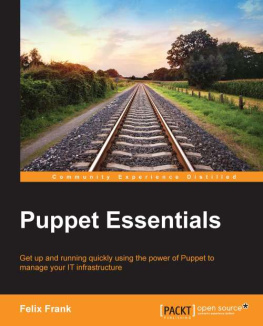
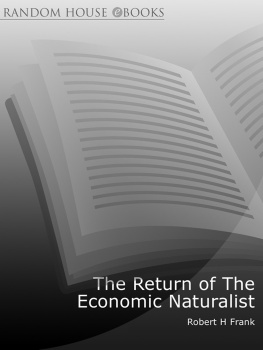
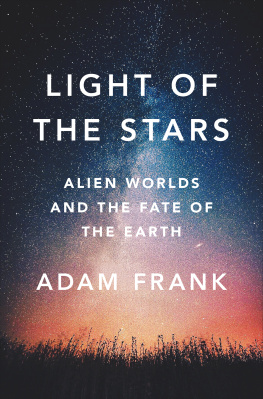
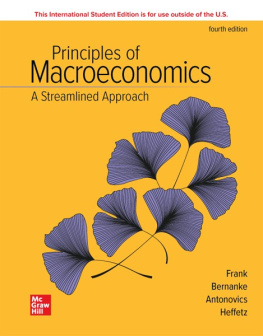
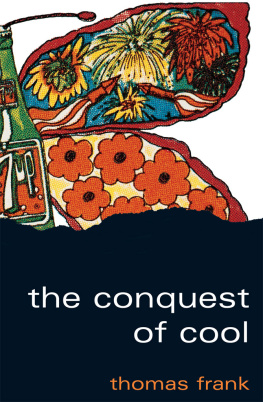
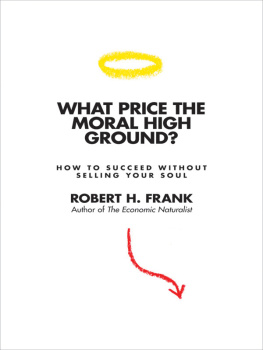
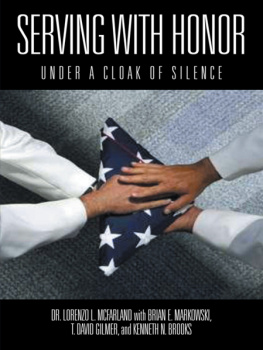
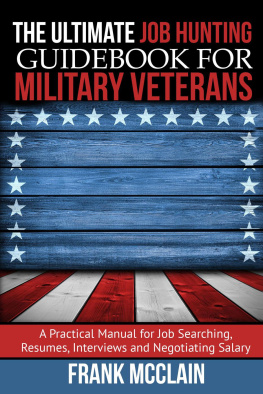

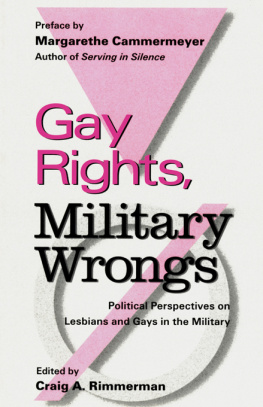
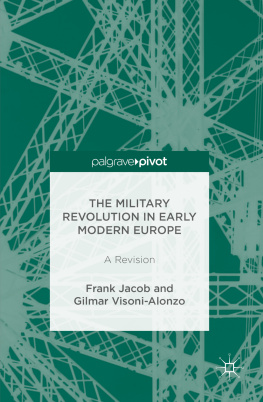
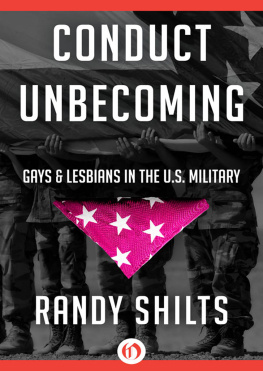
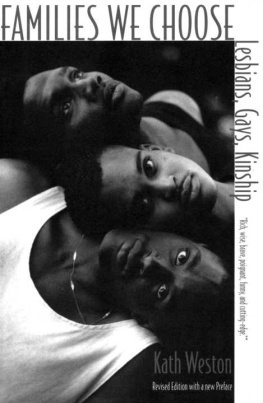
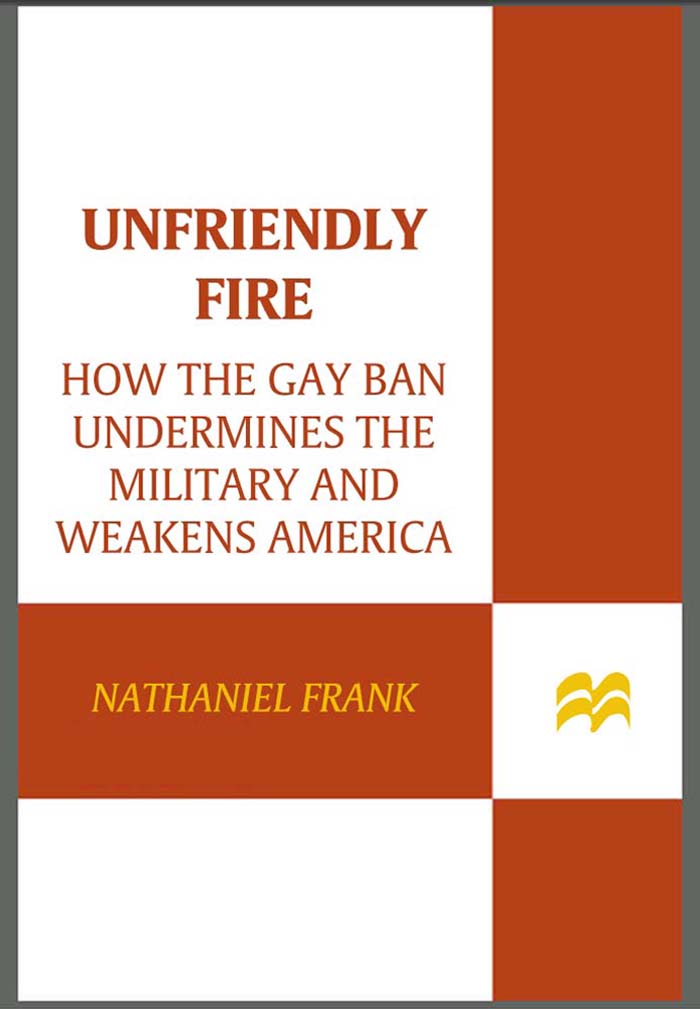

 NEW YORK
NEW YORK